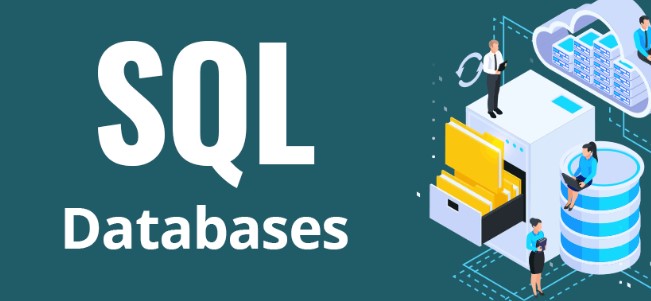Sure! Here’s a detailed blog post on the topic “Best SQL Database: Which One Should You Choose?”
🌟 Best SQL Database: Which One Should You Choose?
When it comes to storing and managing data, SQL databases remain one of the most trusted technologies. But with so many options out there—MySQL, PostgreSQL, SQLite, SQL Server, and more—it can be confusing to choose the best SQL database for your needs.
In this blog post, we’ll explore the top SQL databases, what makes each one unique, and which one might be the best fit for your project.
🧠 First, What is an SQL Database?
An SQL (Structured Query Language) database is a relational database that uses SQL to manage and query structured data. Data is stored in tables with rows and columns, and relationships are created using keys.
SQL databases are great for:
- Web applications
- Financial systems
- Customer management tools (CRM)
- Analytics platforms
- E-commerce platforms
🔝 Top SQL Databases in 2025
1. MySQL
⭐ Best for: Web applications, startups, small to medium businesses
MySQL is one of the most popular open-source SQL databases, widely used in web development.
Pros:
- Free and open-source (with enterprise support from Oracle)
- Very fast and reliable
- Huge community and support
- Works well with PHP and other web technologies
Cons:
- Fewer advanced features compared to PostgreSQL
- Less strict with data integrity rules
2. PostgreSQL
⭐ Best for: Complex apps, analytics, enterprise-level systems
PostgreSQL (or Postgres) is a powerful open-source database known for its robustness and feature richness.
Pros:
- Highly customizable
- Advanced features like JSON, GIS support, and full-text search
- Strong data integrity and reliability
- Active community and frequent updates
Cons:
- Slightly harder to learn for beginners
- Slower performance in extremely high-traffic scenarios compared to MySQL
3. SQLite
⭐ Best for: Mobile apps, embedded systems, prototyping
SQLite is a lightweight, file-based SQL database that doesn’t require a server.
Pros:
- Very fast and easy to set up
- Zero configuration
- Used in mobile apps (like Android), browsers, and IoT devices
- Portable and serverless
Cons:
- Not suitable for large-scale apps
- Limited concurrent access (not ideal for many users at once)
4. Microsoft SQL Server
⭐ Best for: Enterprise applications, .NET environments, Windows servers
SQL Server is Microsoft’s flagship relational database system, designed for high performance and deep integration with Windows technologies.
Pros:
- Excellent performance on Windows
- Strong security features
- Powerful tools (like SQL Server Management Studio)
- Built-in support for reporting and analytics
Cons:
- Licensing costs can be high
- Less popular in non-Windows environments
5. Oracle Database
⭐ Best for: Large enterprises, mission-critical systems
Oracle Database is a commercial-grade RDBMS known for its power, scalability, and advanced features.
Pros:
- Handles massive amounts of data
- Extremely secure and reliable
- Rich in features for analytics, transactions, and clustering
Cons:
- Complex and expensive
- Steeper learning curve
💡 Which SQL Database Should You Choose?
| Use Case | Best SQL Database |
|---|---|
| Learning SQL / Beginner | MySQL or SQLite |
| Web Development | MySQL or PostgreSQL |
| Mobile Applications | SQLite |
| Enterprise Systems | PostgreSQL or SQL Server |
| Financial/Banking Systems | Oracle Database |
| Analytics / Big Data | PostgreSQL |
🏁 Final Thoughts
There’s no one-size-fits-all when it comes to choosing the best SQL database. Each database has its own strengths depending on your goals, experience, and project size.
If you’re just starting out, MySQL or SQLite are great choices. If you need advanced features and strict data handling, go with PostgreSQL. For enterprise and large-scale operations, SQL Server or Oracle are top contenders.
Tip: Most cloud providers (like AWS, Azure, and Google Cloud) offer managed versions of these databases, so you don’t have to worry about setup and maintenance.
Want help choosing the right SQL database for your specific project? Drop a comment or message—I’m happy to help!
